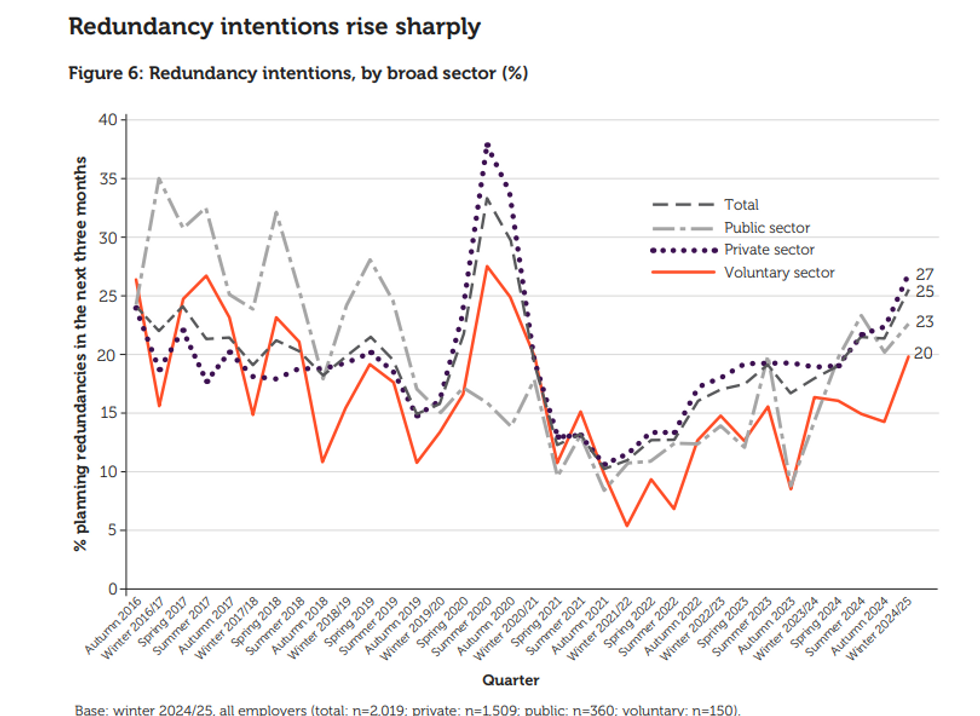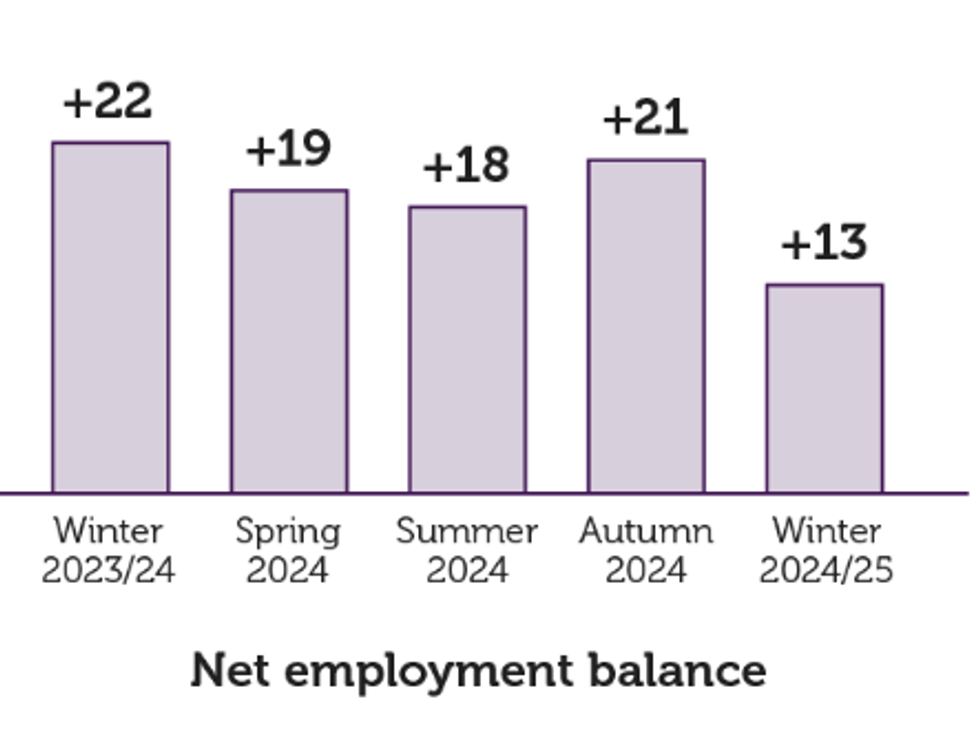Chancellor Rachel Reeves begins to outline her plans to grow the economy
GBNEWS
UK unemployment sits at 4.4 per cent
Don't Miss
Most Read
Trending on GB News
Rachel Reeves has been warned that "immediate action is needed" as UK employers prepare for the "biggest redundancy round" in a decade.
The warning comes as firms prepare for tax increases announced in the Chancellor's autumn Budget, along with tighter employment regulations.
UK employers are preparing for the biggest redundancy round in a decade amid collapsing business confidence, the CIPD’s latest Labour Market Outlook suggests.
Alex Hall-Chen, Principal Policy Advisor for Employment at the Institute of Directors, warned that business confidence in hiring new staff remains low, with headcount expectations at levels comparable to the early stages of the COVID-19 pandemic.
The latest ONS data shows a continued decline in job vacancies, which fell by 9,000 to 819,000 in the three months to January.
Hall-Chen said: "The cumulative impact of recent employment reforms, coupled with upcoming increases to employer National Insurance Contributions and the National Living Wage, is significantly weakening the business case for hiring."
According to the Institute of Directors' latest data, 41 per cent of business leaders believe targeted changes to employment regulations would do the most to boost business confidence in 2025.

UK employers are preparing for the biggest redundancy round in a decade amid collapsing business confidence, the CIPD’s latest Labour Market Outlook suggests
CIPD’s latest Labour Market Outlook
Hall-Chen urged: "Immediate action is needed to address the mounting pressures on businesses and to restore confidence in the labour market," as the Employment Rights Bill approaches its Report stage.
The unemployment rate held steady at 4.4 per cent in the three months to December, though the ONS urged caution over this statistic due to an ongoing overhaul of the nation's jobs survey.
James Cockett, Senior Labour Market Economist, CIPD said: "There are worrying signs some employers are shelving plans to hire new staff or train their people.
"Additional employment costs are prompting others to increase automation or raise productivity in other ways – activity the Government should look to support."
LATEST DEVELOPMENTS:
Gary Smith, Partner at Evelyn Partners, advised that with the UK's weak growth outlook, employees should prepare for potential job insecurity.
He explained that mortgage payments are often the primary concern for those facing income loss, which could deplete redundancy payments if provisions aren't made.
Income protection policies could provide valuable security, though employer-provided coverage rarely protects against unemployment.
Smith said: "A financial planner can ensure you're putting in place the correct protection policies for you, and your financial dependents if applicable."
With job vacancies continuing to decline and redundancy intentions at decade-high levels, industry leaders emphasise the need for swift Government intervention to stabilise the labour market.
Jane Gratton, Deputy Director of Public Policy at the British Chambers of Commerce said all of this is a "continuing headache" for employers and is putting the economy under increasing strain.
She said: "Firms will face even more difficulty in the months ahead with the imminent rise in employment costs, driven by National Insurance and National Living Wage hikes. Many will be reconsidering their recruitment plans as they try to balance the books.
"There is a limit to how much additional cost business can absorb without employment and investment opportunities being damaged. The Government must do all it can to minimise costs for business and ensure they have access to a skilled and healthy workforce."

Employment figures
CIPD’s latest Labour Market Outlook
Although the job markets continue to put a strain on the economy, UK wage growth reached an eight-month high, with average regular pay rising by 5.9 per cent in the three months to December, up from 5.6 per cent in the previous quarter.
This growth outpaced inflation by 3.4 per cent and the number of workers on payrolls increased by 21,000 in January, reaching 30.4 million, following a revised drop of 14,000 in December.
Hannah Slaughter, Senior Economist at the Resolution Foundation, said: "While employment has been falling, real wages continue to rise. Last year was the best year for pay packets in two decades, helping to recover some of the ground lost since the financial crisis.
"But with productivity failing to turn a corner and the wider economy struggling to grow, the UK’s pay recovery is likely to run out of steam soon."







